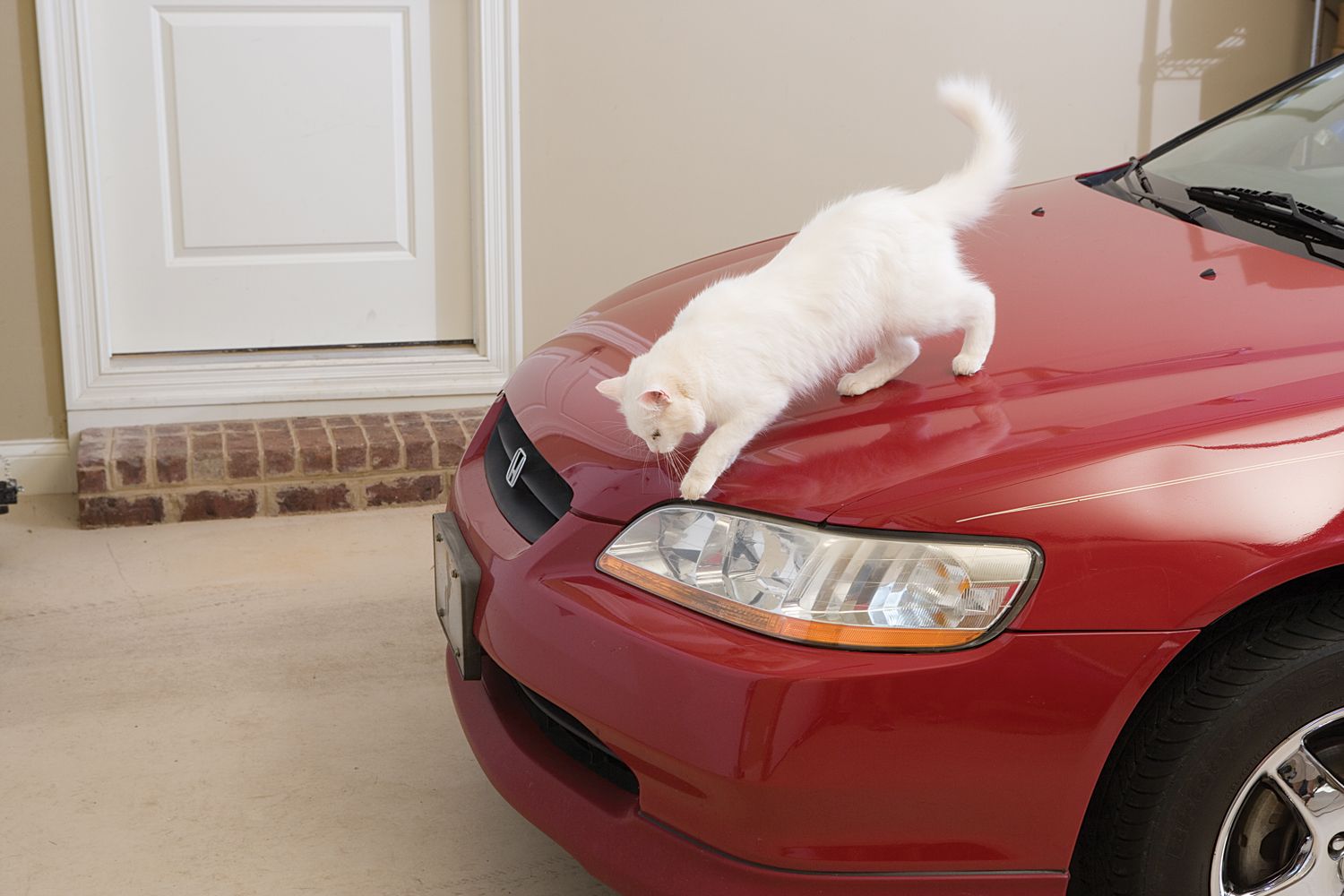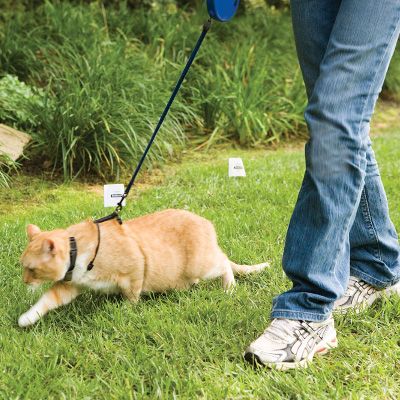Many cats love to be outside. There's a lot to do and so many fun places to explore. There are birds and bugs to chase and huge gardens that work great as a litterbox. But the life of an outdoor cat can be risky. There are dangers found outside that do not exist in the protected home environment. Outdoor cats can end up with injuries that require emergency veterinary care. Some of these injuries can even be fatal and outdoor cats often have a shorter life expectancy than those who live exclusively indoors.
Hit by Cars

Cats are smart critters, but they do not always know enough to stay off the roads and away from moving cars. Cats who are hit by cars can develop numerous injuries requiring emergency treatment. Some common injuries include broken bones, head trauma, internal organ damage or tears in the diaphragm. Some injuries like head trauma require time and supportive care for recovery while other injuries like fractures or diaphragmatic hernias require surgical repair. These injuries can be expensive with costs sometimes exceeding several thousand dollars. Severe injuries to vital organs or those resulting in shock can be fatal.
Dog Attacks

Outdoor cats are at risk for being attacked by other animals including dogs. Dog attacks can lead to severe injuries including internal organ damage, abdominal wall tears, and severe muscle damage. Bite wounds may look relatively minor on the surface but often result in severe damage underneath. Dog bite wounds result in crushing and tearing of the tissue and muscle underneath, and it can take time for the full effects of the muscle damage to be noticed. If your cat is attacked by a dog or other large animal, it is best to take your cat to an emergency hospital to be assessed quickly in case the injuries are worse than they appear.
Bite Wounds

Cat fights are another common outdoor cat problem. Cat fights are not as dangerous as dog attacks, but bite wounds can lead to infection. The infected wounds can become abscessed resulting in fever and discomfort. Treatment for cat bite abscesses typically includes lancing and draining the wound followed by antibiotic therapy.
Infections

Viral infections such as feline leukemia virus (FeLV) and feline immunodeficiency virus (FIV) can be passed from cat to cat via bight wounds. Indoor cats who have no exposure to other cats have zero risk for these viral infections but outdoor cats may be exposed. These viral infections are not treatable and can result in a variety of problems ranging from mild to severe. Cats who go outdoors should be tested for FeLV and FIV on a regular basis.
Toxins

Outdoor cats may be exposed to toxins that an indoor cat would not. Rat poison can be found in garden sheds or garages were cats might go to hide. Rat poison causes internal bleeding that can lead to anemia and even death. Rat poison ingestion can be treated with vitamin K; however, in severe cases, plasma or blood transfusions may be necessary. If left untreated, bleeding can become fatal.
Ethylene glycol (antifreeze) is another outdoor toxin that can quickly become fatal. Antifreeze has a sweet taste that animals tend to like so they will often drink the liquid if given the chance. Antifreeze causes severe kidney damage leading to failure and most often death. There are treatments for ethylene glycol toxicity, but they must be initiated early to be effective. Most cases of ethylene glycol toxicity arrive at the emergency hospital when it is already too late.
Indoor Alternatives

Indoor cats often have to modify their natural behaviors in order to live comfortably with their human companions. There are ways to help keep indoor cats entertained, stress free, and happy. Indoor cats need a place to scratch and places to perch, jump, and climb. They need multiple litterboxes that are kept clean to avoid inappropriate elimination. They need places to hide to get away from other animals and people. Many cats love toys for play and to satisfy their hunting behavior.
Protecting Outdoor Cats
Despite all the dangers, many cats love being outside. Outdoor cats are able to scratch, jump, hide, play, hunt and use the bathroom wherever they choose. You can give your cat safe outdoor time with a cat run, harness, or fence.
If your cat does go outside, be sure to provide food, water, shelter and appropriate veterinary care. Vaccines and flea control are extra important. Know the phone number and address of your closest veterinary emergency clinic so you are not scrambling if an emergency does happen.













